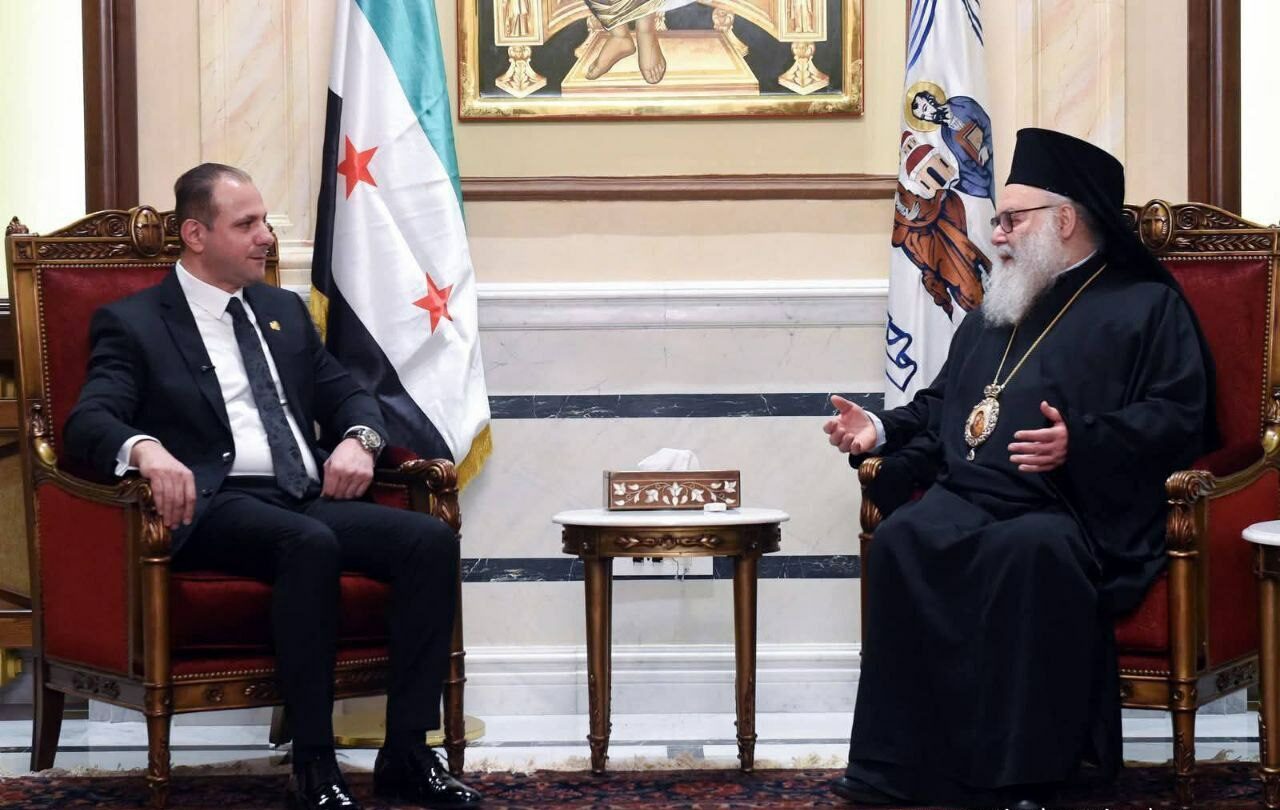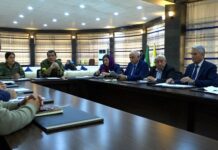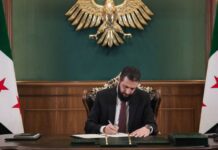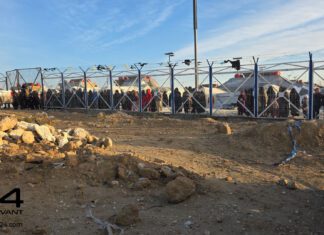
Syrian President Ahmad al-Sharaa’s office underscored the country’s commitment to unity and coexistence yesterday, August 13, during a meeting between Presidency Secretary-General Maher al-Sharaa and Greek Orthodox Patriarch of Antioch and All the East John X Yazigi.
The gathering, held in Damascus, came in the wake of June’s deadly attack on Mar Elias Church in the city’s Douweila neighborhood, which killed 25 people and injured more than 60. Maher, representing the president, conveyed condolences and affirmed the Presidency’s solidarity with Syria’s Christian community.
“We convey to you the condolences of the President of the Republic for the martyrs of the Mar Elias Church in Dweila, and we affirm our solidarity and our standing as one to build the future of Syria,” Maher said, according to a statement from the Greek Orthodox Patriarchate.
Condolences and Commitment
The Secretary-General was joined by Ali Keda, Assistant Secretary-General for Cabinet Affairs, Information Minister Hamza Mustafa, and Hassan Daghim, a member of the Supreme Committee for People’s Assembly Elections. The delegation’s visit marked both a gesture of mourning and a reaffirmation of national unity.
Maher told the Patriarch that the attack “targets coexistence in Syria” and expressed the president’s appreciation for the “authentic Christian community,” calling the Patriarchate in Damascus a symbol of the community’s enduring presence in the East.
Patriarch John X welcomed the delegation, sending his greetings to the president and stressing the Christian role in Syria’s history. “The Patriarchate of Antioch and All the East has striven and continues to strive… to stand by the people of this nation, regardless of the concepts of majority or minority,” he said.
An Attack on Coexistence
The June 22 assault on Mar Elias Church began when a gunman opened fire on worshipers during evening Mass before detonating an explosive belt. Witnesses reported at least one additional armed attacker. Syrian Interior Ministry spokesman Nouruddin al-Baba said the perpetrators were non-Syrians who entered from Hol camp through the Syrian desert.
The attack caused significant damage to the church, killing civilians including children and wounding dozens. Officials say it was intended to undermine Syria’s longstanding tradition of religious coexistence.
Pluralism as Strength
The Presidency emphasized that Syria’s national identity transcends sectarian divisions, with all citizens sharing a sense of belonging to the country’s land, history and shared future. Strengthening this cohesion, officials said, is essential to resisting internal and external pressures.
The Christian presence, deeply rooted in Syria’s cultural and historical fabric, has made lasting contributions to the nation’s civilization over centuries. The government framed the meeting as a signal to the world that pluralism, when embraced, can serve as a source of unity and resilience rather than discord.








